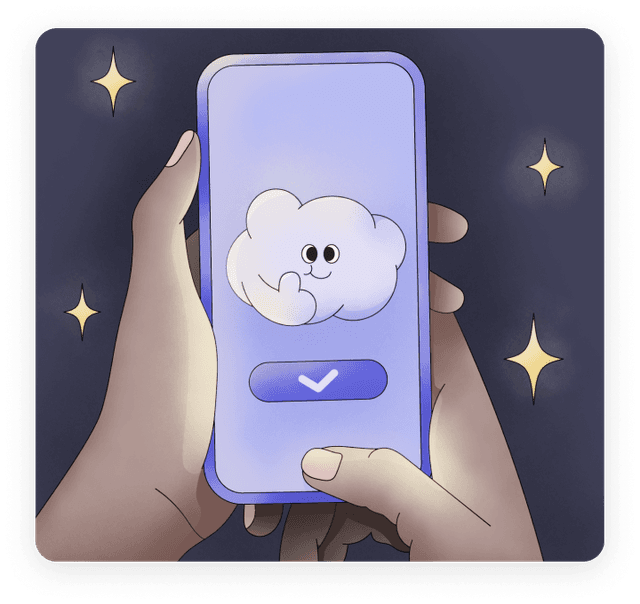
Denys Chumak
08 Mar 2024
Can We Dream and Snore Simultaneously?
Introduction
Have you ever wondered if it's possible to dream and snore at the same time? It's a curious question that may have crossed your mind during those moments of reflection. Dreams have always fascinated humans, and many have wondered about the connection between our dreams and the sounds we make while sleeping, like snoring.
Did you know that Sleepsources says that around 67% of people have snored at some point in their lives? In this article, we'll explore the intriguing question: Can you dream and snore at the same time? Let's dive in and uncover the answers together.
What Are Dreams?
Dreams are a fascinating aspect of the human experience. They occur during a specific stage of sleep called the rapid eye movement (REM) phase. Dreams can be vivid or vague, filled with images, emotions, and narratives. They often reflect our subconscious thoughts, desires, fears, and memories.
**What Causes Snoring?
Snoring is the noise that happens when we sleep, and the air can't flow freely through our nose and mouth. This can occur because our throat and tongue muscles become relaxed, making the airway narrower than usual. Factors like obesity, nasal congestion, alcohol consumption, and sleep position can contribute to snoring.
The Relationship Between Dreams and Snoring
The Dreaming State
Dreams primarily occur during the REM phase of sleep, which typically happens multiple times throughout the night. When we are in REM sleep, our brain becomes more active, and our eyes move quickly despite being closed. This stage is crucial for processing emotions, memory consolidation, and creative thinking.
The Mechanics of Snoring
Snoring itself is not directly linked to dreaming. On the other hand, snoring is associated with deep sleep stages and non-REM sleep. It is more likely to occur when our muscles are deeply relaxed, leading to the vibration of tissues in the throat.
Now, let's address the burning question: Can you snore and dream at the same time? The answer is both yes and no.
The No: Snoring and REM Sleep
When we're in the Rapid Eye Movement (REM) stage of sleep when we do most of our dreaming, our brain tells our muscles to take a break and temporarily stops them from moving, including the ones that cause snoring. This paralysis, known as atonia, prevents us from acting out our dreams physically, including snoring. So, technically speaking, you cannot snore and dream at the same time because snoring during REM sleep is unlikely.
The Yes: Snoring and Non-REM Sleep
Non-REM sleep, which includes deeper stages of sleep, is characterised by less brain activity and limited dreaming. It is possible to snore during this stage, as the muscle paralysis associated with REM sleep is absent. However, the dreams experienced during this stage are usually less vivid and memorable.
Can We Dream and Snore Simultaneously?
The Nature of Dreams
While it is possible to do snoring and dreaming at the same time, they generally happen during different stages of sleep. Dreams occur predominantly during REM sleep, while snoring is more common during non-REM sleep. However, it's worth noting that sleep stages can overlap and vary throughout the night.
Snoring and Dreaming Coexistence
Occasionally, a person might experience moments of light snoring during the transition from REM to non-REM sleep or vice versa. In such cases, it is possible for snoring and dreaming to coexist temporarily. However, this occurrence is rare and does not necessarily indicate a significant connection.
It's important to note that snoring during sleep doesn't necessarily mean you're dreaming at the same time. Snoring is usually caused by the vibration of tissues in the throat and airway, often due to the relaxation of these muscles during sleep. While snoring is common, dreaming and snoring simultaneously is relatively rare.
Interpreting the Symbolism
Now that we've explored the possibility of dreaming and snoring simultaneously let's consider the symbolism behind these two activities. As you're aware, dream analysis can offer valuable insights into our subconscious mind and emotions. If you find yourself snoring in your dreams, it could represent a struggle to express yourself or feeling unheard in your waking life. By paying attention to such cues, you can better understand your emotional landscape and work towards healing and growth.
Dream Analysis and Emotional Well-being
Dream analysis can be a powerful tool for those of us seeking answers and guidance in our dreams. It allows us to explore the dream symbolism and their hidden messages, offering insights into our unresolved emotional issues and inner desires.
The Power of Dreams
Dreams can act as a mirror, reflecting our deepest fears, desires, and unhealed wounds. By paying attention to the recurring themes, symbols, and emotions in our dreams, we can gain valuable self-awareness and make more informed decisions in our daily lives.
Seeking Professional Guidance
While exploring dream analysis on our own can be enlightening, it's important to remember that dreams are highly personal and subjective. If you find yourself struggling with unresolved emotional issues or feeling unloved, seeking the guidance of a professional dream analyst or therapist may provide you with the support and insights you need.
Conclusion
Dreams and snoring may seem unrelated at first glance, but they both offer glimpses into our inner world. While snoring is more closely linked to non-REM sleep, dreaming predominantly occurs during REM sleep when snoring is less likely. However, the power of dreams should be considered, especially when it comes to unravelling our emotional complexities and finding a sense of belonging.
If you're tired of waking up in the morning with lots of dreams and not knowing what they mean, we have the perfect solution for you: the DreamApp. This app is a user-friendly tool designed to help you interpret your dreams in a simple and accessible way. It serves as a virtual mentor, guiding you towards self-awareness and helping you uncover hidden aspects of your identity.
The DreamApp is ready to help you unlock the mysteries of your dreams. Download the App Now!
FAQS
Can we dream and snore at the same time?
Yes, it's possible. Dreaming occurs during the REM (rapid eye movement) stage of sleep, while snoring can happen at any stage.
Does snoring affect dream quality?
Snoring itself doesn't directly impact dream quality. However, loud or disruptive snoring may disrupt sleep cycles, potentially affecting dream recall or vividness.
Can snoring be a sign of a sleep disorder?
Yes, snoring can be a symptom of sleep disorders such as sleep apnea. If accompanied by daytime fatigue or other symptoms, consult a healthcare professional for evaluation.
Are all dreams associated with snoring?
No, snoring is a common bodily function and can occur during any sleep stage. Dreams, on the other hand, occur specifically during REM sleep but not necessarily during snoring episodes.
How can I reduce snoring and improve sleep quality?
Maintaining a healthy lifestyle, sleeping in a proper position, using nasal strips or devices, and seeking medical advice if needed, can help reduce snoring and improve overall sleep quality.
Did you have an unusual dream with this symbol?
Let's analyze this dream with our expert!
At least five words, please.

Your dreams are completely private
Take control of your dream emotions in the free mobile app



The most recent users' dreams
Go to the user dreams page
Dream App
Free dream interpretations

(1,213)











